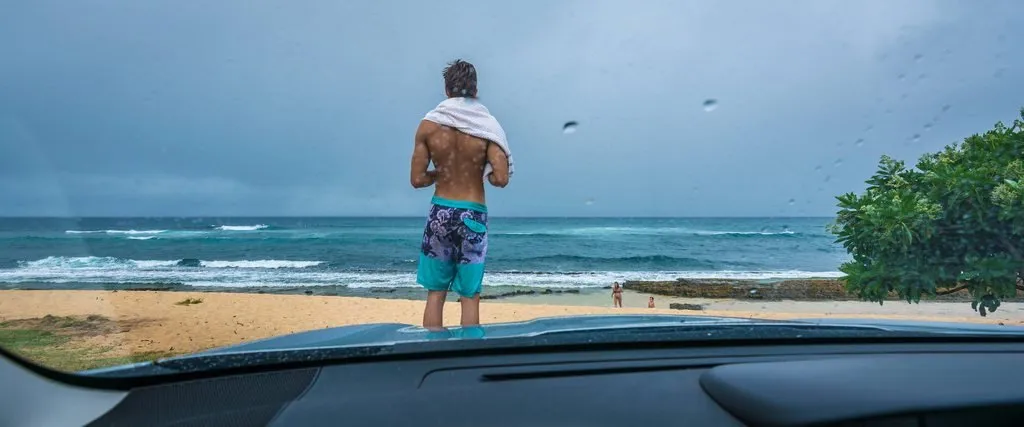It is currently 12:17 am as I sit here writing this post. The rain is coming down hard and there is thunder in the distance. I am half asleep so I apologize for any typos.. I want to share my thoughts with you this eve.
WHY
I am writing this post with a frustration over the bulk of the human population and how we treat our earth in this day and age. Yesterday I spent the evening in the water surfing some stormy waves but in absolute bliss. As my hands stroked the the crystal clear water propelling me through the lineup, I couldn't help but think about the state that our oceans are in. Plastic has completely saturated the ocean environment outnumbering sea life 6 to 1. The great pacific garbage patch is the largest ocean garbage patch in the world with a size twice as big as Texas.
Each year about 100,000 marine animals are killed through entanglement or ingestion of plastics. 90 % of all trash in the ocean is plastic....these facts blow my mind but also make sense. Have you ever stopped to think about how much plastic surrounds us? Almost everything we buy has some form of plastic with it. A friend recently went into Costco to see what she could find that did not have any plastic, all that she came out with was a watermelon and a box of beer. We live in a plastic world that shows little sign of stopping its production of the harmful material. Some may argue that we recycle and I would say yes the world does recycle and it is becoming more and more popular amongst the general population but to date only 5% of the total output gets recovered. The average American throws away approximately 185 pounds of plastic per year..mind blowing. To throw another fact your way.. 50% of the plastic that is used gets used once before being tossed in the trash.
I could go on and on about facts and reasons for plastics being bad but I'm not writing this post to try and scare people. I am writing this to bring attention to the matter and to hopefully bring a little change in the person reading this.
In a lot of ways these facts and the daunting size of the issue can be overwhelming but we must understand that it begins with us..YES YOU. Small steps equal big steps equal bigger steps.
Change starts at home. By reducing our use of plastics in our personal lives we can create ripples through our families and communities by setting examples for others to follow.
THINGS THAT WE CAN TO TO HELP THE WORLD
Choose to reuse when it comes to shopping bags and bottled water. Cloth bags and metal or glass reusable bottles are available locally at great prices.
Refuse single-serving packaging, excess packaging, straws and other "disposable" plastics. Carry reusable utensils in your purse, backpack or car to use at bbq’s, potlucks or take-out restaurants.
Reduce everyday plastics such as sandwich bags and juice cartons by replacing them with a reusable lunch bag/box that includes a thermos.
Bring your to-go mug with you to the coffee shop, smoothie shop or restaurants that let you use them, which is a great way to reduce lids, plastic cups and/or plastic-lined cups.
Go digital! No need for plastic cds, dvds and jewel cases when you can buy your music and videos online.
Seek out alternatives to the plastic items that you rely on such as using glass jars for bulk items in the grocery store.
Recycle. If you must use plastic, try to choose #1 (PETE) or #2 (HDPE), which are the most commonly recycled plastics.
Avoid plastic bags and polystyrene foam as both typically have very low recycling rates.
Volunteer at a beach cleanup. Surfrider Foundation Chapters often hold cleanups monthly or more frequently.
Support plastic bag bans, polystyrene foam bans and bottle recycling bills.
Spread the word. Talk to your family and friends about why it is important to reduce plastic in our lives and the nasty impacts of plastic pollution.
THANK YOU
Thank you for reading. My eyes are now 2/3's of the way shut. I hope that we can all start to make changes in our lives that hopefully one day will lead to grand scale change for our ocean and the creatures who inhabit it.

